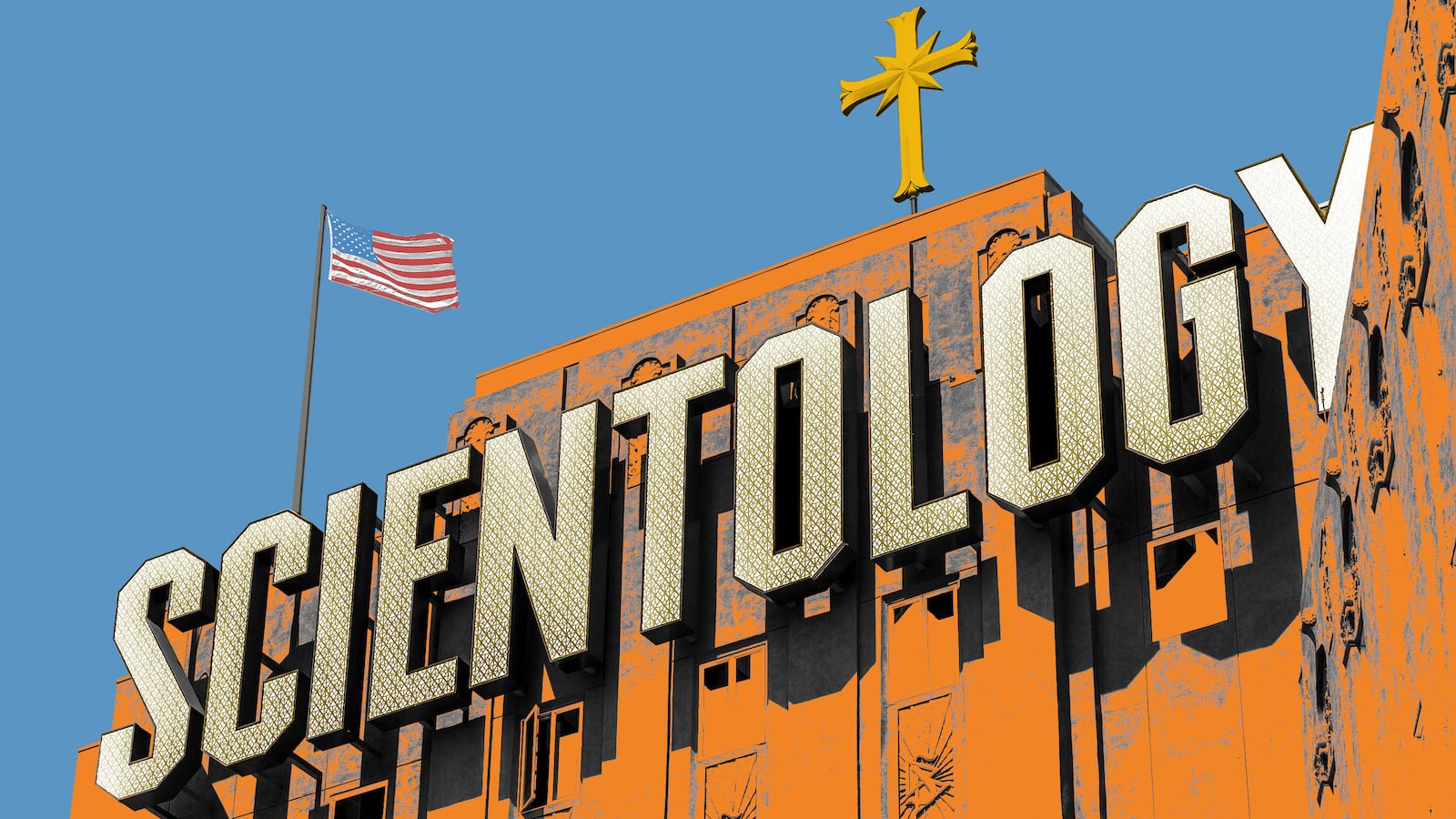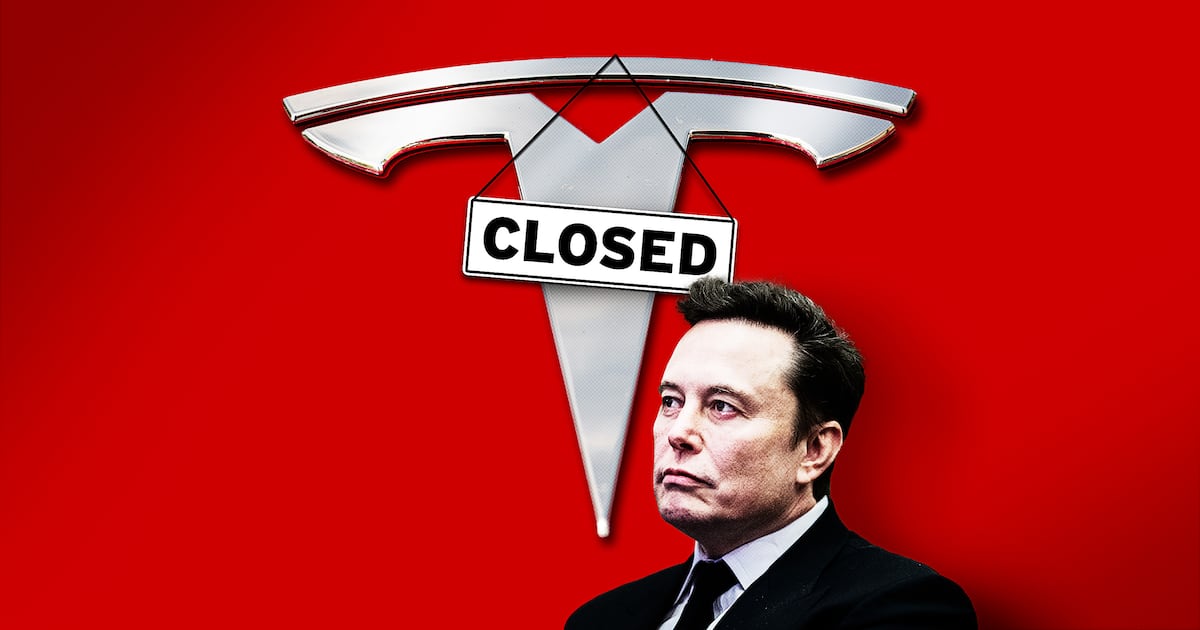On December 17, a letter was sent to President Donald Trump regarding the First Step Act, a criminal justice reform bill seeking to reduce the risk of recidivism among the estimated 181,000 convicts in the federal prison system. The contents of the letter, urging the president to “oppose the Cotton-Kennedy amendments to the First Step Act,” were par for the course; what raised many an eyebrow around Washington, however, was the inclusion of the Church of Scientology.
In addition to the Scientology logo, which resided among the 22 criminal justice reform organizations at the top of the missive, alongside respected bipartisan outfits like the U.S. Justice Action Network and Americans for Prosperity, John Stanard, the church’s national director of Social Betterment Programs and Policy, was listed as one of its signatories. When reached for comment, Sen. Tom Cotton (R-AR) singled out the Church of Scientology’s inclusion.

The letter was crafted by Families Against Mandatory Minimums (FAMM), a nonprofit organization combating the country’s strict mandatory-sentencing laws. Kevin Ring, the president of FAMM, explained Scientology’s presence in the letter: “We reached out to members of the Justice Roundtable through the listserv—that’s how we usually solicit folks who wanted to sign—and they were one of the groups that asked to sign.” (Indeed, Stanard is a member of the Justice Roundtable and the Interfaith Criminal Justice Coalition.) When pressed as to why they’d have an alleged abusive cult among its signatories, he added, “It’s worth us reconsidering.”
“Scientology loves interfaith efforts in general because they believe it makes them look more like a ‘mainstream religion’ when they take part in them,” offers Tony Ortega of The Underground Bunker, the leading journalist when it comes to Scientology. “And one thing Scientology desperately craves is to be considered mainstream.”
It was later revealed by Lachlan Markay’s Pay Dirt newsletter that Greg Mitchell, a shadowy D.C. operative who’s earned millions lobbying on behalf of the Church of Scientology since 2003, was pushing the First Step Act for several clients, including one of the letter’s other signatories, the Justice Action Network (JAN), which works closely with FAMM. But both FAMM and JAN maintain they had no idea Mitchell was also doing criminal justice reform lobbying for Scientology—and when they found out, sources say he was terminated.
“Mr. Mitchell did not inform Justice Action Network leadership of his advocacy on behalf of the Church of Scientology,” a spokesperson for JAN told The Daily Beast. “He was hired to provide policy expertise on federal criminal justice reform legislation, and upon the bill’s passage, Mr. Mitchell’s consulting project with us was completed.”
For his part, Mitchell claims that he “did not do any work on this bill on behalf of the Church,” that he “works on international religious freedom issues for the Church,” and that he “worked on the First Step Act for two other clients that are not related.” He further alleges “3rd quarter 2011 was the last time I did any criminal justice reform work on behalf of the Church” in an official capacity—pointing to his lobbying disclosures as evidence. The Church of Scientology echoed this, claiming that while they did “work with faith-based coalitions” to push the First Step Act, Mitchell “did not work for the Church of Scientology or any related entity on this bill.”
Mitchell did, however, confess to The Daily Beast that he’s been lobbying for the Scientology programs “Narconon and Criminon” in an unofficial capacity, “pointing to them as successful rehabilitation programs in the context of lobbying” for criminal justice reform. And this, say ex-Scientologists, is the real reason the church has been aligning itself with criminal justice reform causes in Washington like First Step: to convert criminals.
One of the key components of the First Step Act, which President Trump signed into law on Dec. 21, is “earned time credits”—or that inmates can secure early release by completing rehabilitation programs via “Nonprofit and other private organizations, including faith-based, art, and community-based organizations that will deliver recidivism reduction programming on a paid or volunteer basis.”
According to Mike Rinder, a former senior executive in the Church of Scientology, the religion’s founder, L. Ron Hubbard, taught that “the criminal justice system is unfair, unworkable and corrupt, and that justice will never happen unless it is done under the Scientology system of ‘Ethics and Justice,’” as laid out in Hubbard’s book, Introduction to Scientology Ethics.
So, Scientology helped establish a “social-betterment group” called Criminon International. Run by Greg Capazorio, a Scientology Freedom Medal winner who just so happens to be married to Tom Cruise’s sister, Cass Mapother, Criminon, “meaning ‘no crime,’ is a volunteer criminal rehabilitation program which utilizes technologies developed by L. Ron Hubbard to help convicts recover pride and self-esteem,” reads the Church of Scientology website.
The core of Criminon’s rehab program is The Way to Happiness, a booklet outlining 21 precepts devised by Hubbard that are said to lead to an improved life (e.g. “Don’t Be Promiscuous”). And the pamphlet has been used as a Scientology recruitment tool by prominent adherents of the faith—e.g. Tom Cruise, who distributed copies on the set of War of the Worlds, and its team of Volunteer Ministers, who regularly circulate them to survivors in the wake of disasters, like the recent California wildfires. In the past, Scientology has come under fire for falsely claiming that reputable organizations—such as the LAPD, Boys & Girls Clubs, and the mayor’s office of San Francisco—have endorsed The Way to Happiness, leading those groups to publicly disavow it, and they’ve even tried to sneak it into America’s schools.
Despite its clear connection to Scientology, and the church’s public stance that it implements Hubbard’s “technologies,” Criminon argues that it is a secular organization. On its website, it contains the following disclaimer: “Criminon is not licensed to use and does not utilize the religious writings and technologies of Mr. Hubbard. It has the secular purpose of eradicating the scourge of crime which plagues and, often, terrorizes our societies.”
Leah Remini, the world’s foremost Scientology whistleblower, begs to differ, branding The Way to Happiness “propaganda” designed to attract new converts to a religion whose membership has declined dramatically over the past decade due to scandal.
“L. Ron Hubbard has very precise policies contained in their Public Relations doctrine that state in part that Scientologists are to ‘align themselves with real churches and push forward the public image that Scientology is the solution to man’s ills,’” Remini tells me.
“Criminon is just another front group for Scientology,” she continues. “This is just a play for Scientology to get the government to pay for its Scientology technology with its Criminon program.”
Criminon International did not respond to requests for comment for this story; the Church of Scientology said through a spokesperson that, “The Church has supported Criminon for more than three decades,” but refused to answer specific questions about ties between Scientology and Criminon.
Meanwhile, Criminon is currently offered in a number of prisons around the world—including those in Florida, Washington D.C., and California. A press release issued by Criminon on Dec. 13 boasted of how 24 inmates had recently received certificates for completing “the first in the series of Criminon courses,” The Way to Happiness.
“The graduation marked the seventh graduation this year and capped a total of 1,445 inmates helped in the 120 Florida prisons where the program is being delivered through correspondence courses and on-site delivery,” the press release stated.
Though Criminon’s website makes the bold claim that it’s been known to “cut 80 percent recidivism rates to zero and entirely eradicate cellblock violence,” these numbers haven’t been verified, since the organization hasn’t allowed itself to be subjected to any independent studies.
A 2005 Los Angeles Times exposé examining Criminon in L.A. prisons found that, like Scientology, Criminon is possessed of controversial views toward mental health—namely, that modern psychiatry and the use of psychiatric drugs are universally harmful.
“If [inmates] are on psychiatric drugs, encourage them to get off,” a Criminon booklet obtained by the Times stated. “Psychiatrists are heavily into the prison system. Most jails and prisons have a staff psychiatrist that goes in daily and gives dosages of various and sundry mind-altering drugs to the inmates. Most of the time this is a ploy to keep the inmates sedated so that they don't cause trouble.” A 2011 promotional video for Criminon further claimed inmates are “forcibly drugged to keep them under control.”
Professor Stephen Kent, a sociologist from the University of Alberta who studies the group, told the Times that Scientology’s goal “is to destroy psychiatry and replace it with Scientology’s own treatments. Criminon is simply one of many Scientology organizations that hope to see this goal realized.”
Or as Remini puts it: “Any organization aligning itself with a for-profit, criminal organization, such as Scientology, should beware.”








